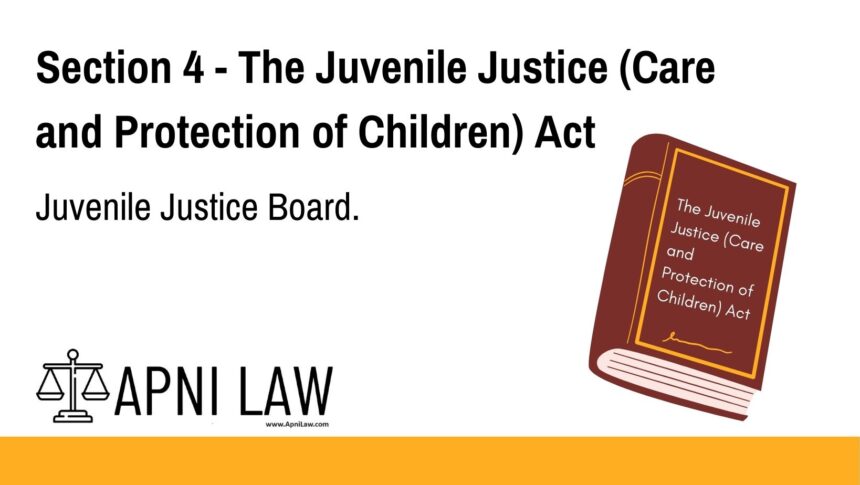Code
(1) Notwithstanding anything contained in the Code of Criminal Procedure, 1973 (2 of 1974), the State Government shall constitute for every district, one or more Juvenile Justice Boards for exercising the powers and discharging functions relating to children in conflict with law under this Act.
(2) A Board shall consist of:
-
A Metropolitan Magistrate or a Judicial Magistrate of First Class (not being a Chief Metropolitan Magistrate or Chief Judicial Magistrate), referred to as the Principal Magistrate, with at least three years’ experience, and
-
Two social workers (at least one woman) selected in such manner as prescribed.
(3) Eligibility of Social Workers:
No social worker shall be appointed unless he/she has either:
-
Actively engaged in child-related health, education, or welfare activities for at least seven years, or
-
Is a practicing professional with a degree in child psychology, psychiatry, sociology, or law.
(4) Disqualifications for Appointment:
A person shall not be eligible if he/she:
-
Has a past record of violation of human or child rights.
-
Has been convicted of an offence involving moral turpitude without full pardon.
-
Has been removed or dismissed from government service.
-
Has indulged in child abuse, child labour, or human rights violations.
(5) Training:
Induction training and sensitisation regarding child care, protection, rehabilitation, legal provisions, and justice must be provided within sixty days of appointment.
(6) Term and Resignation:
The term of office and resignation procedures for Board members shall be as prescribed.
(7) Termination of Board Members:
The State Government may terminate a member (other than the Principal Magistrate) if he/she:
-
Misuses power under this Act,
-
Fails to attend proceedings for three consecutive months without valid reason,
-
Fails to attend minimum three-fourths of sittings in a year,
-
Becomes ineligible as per sub-section (4).
Explanation
Section 4 details the structure and functioning of the Juvenile Justice Board, ensuring that cases involving children in conflict with law are handled by specialized and sensitized individuals.
It emphasizes the composition of the Board with both judicial and social work expertise and imposes strict eligibility criteria to safeguard the child-centric approach of the system.
Illustration
Example:
Suppose a child is apprehended for a petty crime like shoplifting.
-
The Juvenile Justice Board comprising a qualified Magistrate and two trained social workers will hear the case.
-
If one of the social workers has missed several hearings without reason, the State Government has the authority to terminate their appointment.
Common Questions and Answers
1. Who heads the Juvenile Justice Board?
-
Answer: A Principal Magistrate (Metropolitan or Judicial Magistrate of First Class) with at least three years of experience.
2. How are social workers selected for the Board?
-
Answer: They must either have seven years of experience in child welfare activities or a professional degree in child psychology, psychiatry, sociology, or law.
3. What training is mandatory for Board members?
-
Answer: Induction training and sensitization on child care, rehabilitation, and legal frameworks within sixty days of their appointment.
4. Can a Board member be removed before their term ends?
-
Answer: Yes, if they misuse their powers, fail to attend proceedings adequately, or become otherwise ineligible.
Conclusion
Section 4 of the Juvenile Justice Act lays the groundwork for a specialized, sensitive, and capable authority to deal with children in conflict with the law.
By mandating a well-qualified bench combining judicial expertise and child welfare experience, the law ensures that children are treated with understanding, dignity, and care rather than as criminals.
Strict criteria for appointment and provision for training and termination uphold the integrity, efficiency, and child-centric nature of the Juvenile Justice system.
This ensures the system works not to punish but to rehabilitate and reintegrate young individuals into society in a constructive manner.








